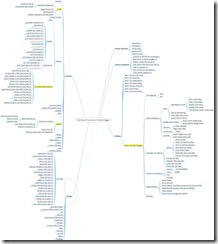You know what the world needs? Wikis without spoilers.
I just finished A Crown of Swords, Book 7 of the Wheel of Time. If you haven’t read these books, let me assure that you will not remember everyone and everything. It is physically impossible. You’ll see a name pop up and wonder who or what it is, and where you last saw him/her/it. In those cases, there’s only three things you can do: 1) Keep reading and hope that Robert Jordan fills you in on the details, 2) Use the handy search feature of your Kindle and hope the name is found somewhere earlier, or 3) Lookup the name on a helpful Internet Wheel of Time Wiki Page.
Unless you’ve read the whole series before, I do not recommend that last one. The helpful information you’ll get will include every spoiler from the entire series, because wiki authors don’t seem to care that they’re going to ruin your day.
For that reason I have been extremely diligent in avoiding Wheel of Time wiki pages, and anything that looks like it might even hint at spoilers, so nothing too major has been spoiled for me … yet. It feels like it’s inevitable though.
My point is that thanks to those spoilerific wikis, I have to write my own frickin’ Wheel of Time encyclopedia as I go. I was all right through three books. Then there was an explosion of people, places, and things. After book five, I simply had to start a catalog. Shown below is how it looks at the beginning of Book 8 (don’t look if you haven’t read through book 7, although I don’t think any spoilers are shown). What I’m doing is saving a different copy for each book. Each one gets progressively more complicated. That way, if I go back and re-read these books later, I can pull up the one that corresponds to the book I’m on.
By the way, I’m using this nifty mind-mapping software called FreeMind to make this catalog.
P.S. Yes, I have spent way too much time on this.
